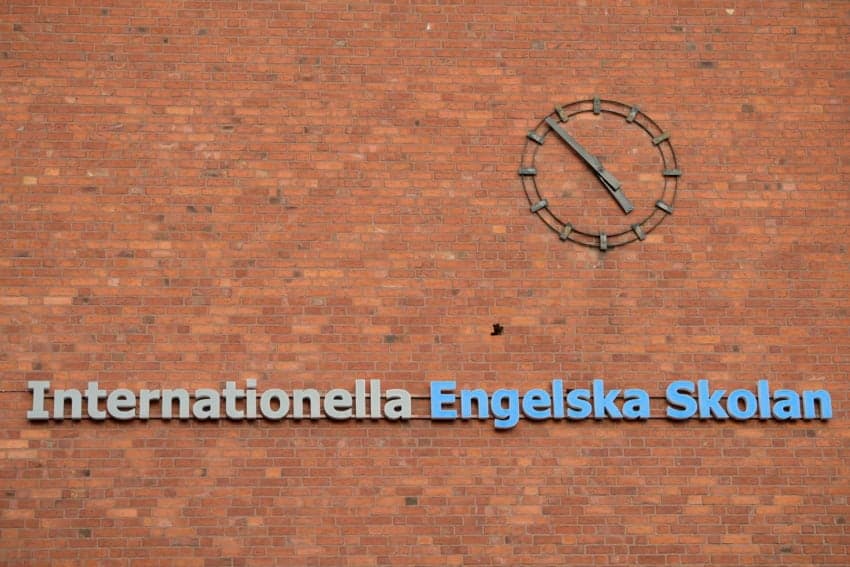IES chain blocked from opening four new schools

Sweden's Internationella Engelska Skolan (IES) chain has been denied permission to open four new schools in Gothenburg, Huddinge, Norrtälje, and Upplands-Bro, after the schools inspectorate said it had not provided pupil data.
According to the Dagens Nyheter (DN) newspaper, the Swedish Schools Inspectorate (Skolinspektionen) has denied permission to the chain to open a new planned new school in Norrtälje, north of Stockholm, even though the building that will house it is already half built. The inspectorate has also denied permission to three other schools which the chain had applied to start in 2023.
In all four cases, the applications have been rejected because the school did not submit the required independent assessment for how many pupils the schools were likely to have.
Jörgen Stenquist, IES's deputy chief executive, said that IES has not in the past had to submit this data, as it has always been able to point to the queues of pupils seeking admissions to the school.
"The fact that Engelska Skolan, as opposed to our competition, has never had the need to hire external companies to do a direct pupil survey is because we have had so many in line," he told DN.
"In the past, it has been enough that we reported a large queue in the local area. But if the School Inspectorate wants us to conduct targeted surveys and ask parents directly if they want their children to start at our new schools, then maybe we have to start doing that."
READ ALSO:
- Why The Local’s IES story has caused such a stir in Sweden
- What’s it like to work as a foreign teacher at Swedish free school chain IES?
- Foreign teachers accuse Swedish school chain IES of inflating grades
According to the newspaper, when the inspectorate had in the past asked for pupil predictions, the chain has refused, stating simply "we do not make student forecasts", which the inspectorate has then accepted.
However, in this year's application round, when IES wrote: "We do not carry out traditional interest surveys as we simply have not had a need for this," the inspectorate treated it as grounds to reject its applications.
According to DN, other school chain have been complaining to the inspectorate that IES gets favourable treatment and was excused some requirements other chains have to fulfil.
Liselotte Fredzell, from the inspectorate's permitting unit, confirmed that the inspectorate was trying to be more even handed.
"Yes, it is true that we are now striving for a more equal examination of applications. Things may have been getting too slack, and we needed to tighten up."
Comments
See Also
According to the Dagens Nyheter (DN) newspaper, the Swedish Schools Inspectorate (Skolinspektionen) has denied permission to the chain to open a new planned new school in Norrtälje, north of Stockholm, even though the building that will house it is already half built. The inspectorate has also denied permission to three other schools which the chain had applied to start in 2023.
In all four cases, the applications have been rejected because the school did not submit the required independent assessment for how many pupils the schools were likely to have.
Jörgen Stenquist, IES's deputy chief executive, said that IES has not in the past had to submit this data, as it has always been able to point to the queues of pupils seeking admissions to the school.
"The fact that Engelska Skolan, as opposed to our competition, has never had the need to hire external companies to do a direct pupil survey is because we have had so many in line," he told DN.
"In the past, it has been enough that we reported a large queue in the local area. But if the School Inspectorate wants us to conduct targeted surveys and ask parents directly if they want their children to start at our new schools, then maybe we have to start doing that."
READ ALSO:
- Why The Local’s IES story has caused such a stir in Sweden
- What’s it like to work as a foreign teacher at Swedish free school chain IES?
- Foreign teachers accuse Swedish school chain IES of inflating grades
According to the newspaper, when the inspectorate had in the past asked for pupil predictions, the chain has refused, stating simply "we do not make student forecasts", which the inspectorate has then accepted.
However, in this year's application round, when IES wrote: "We do not carry out traditional interest surveys as we simply have not had a need for this," the inspectorate treated it as grounds to reject its applications.
According to DN, other school chain have been complaining to the inspectorate that IES gets favourable treatment and was excused some requirements other chains have to fulfil.
Liselotte Fredzell, from the inspectorate's permitting unit, confirmed that the inspectorate was trying to be more even handed.
"Yes, it is true that we are now striving for a more equal examination of applications. Things may have been getting too slack, and we needed to tighten up."
Join the conversation in our comments section below. Share your own views and experience and if you have a question or suggestion for our journalists then email us at [email protected].
Please keep comments civil, constructive and on topic – and make sure to read our terms of use before getting involved.
Please log in here to leave a comment.